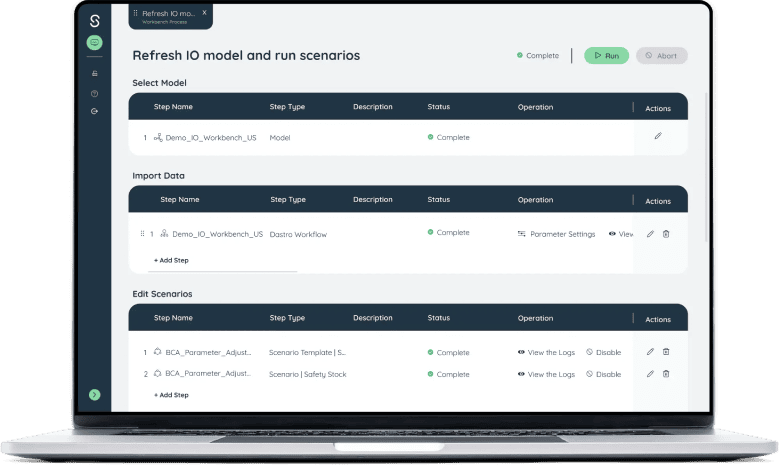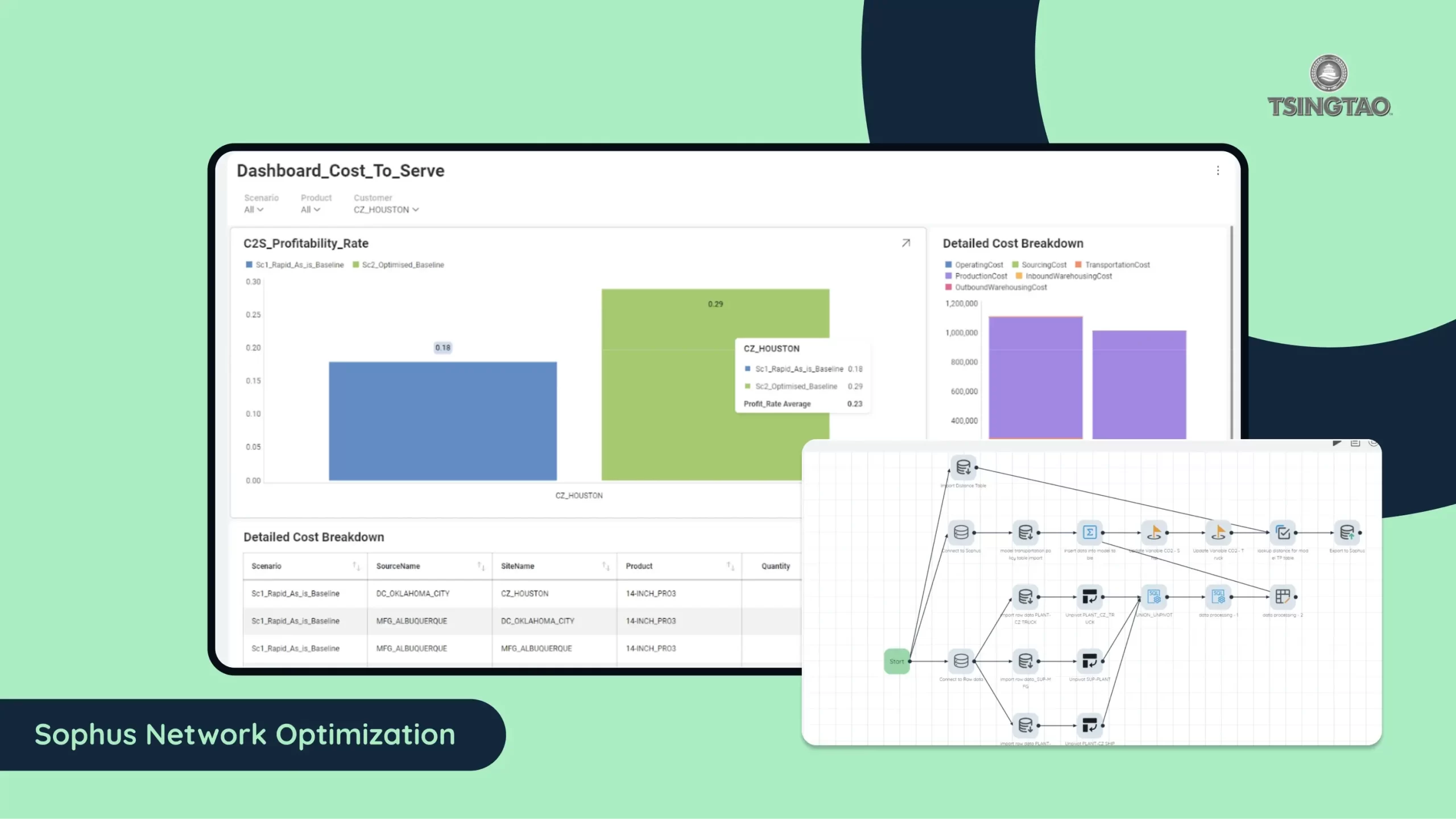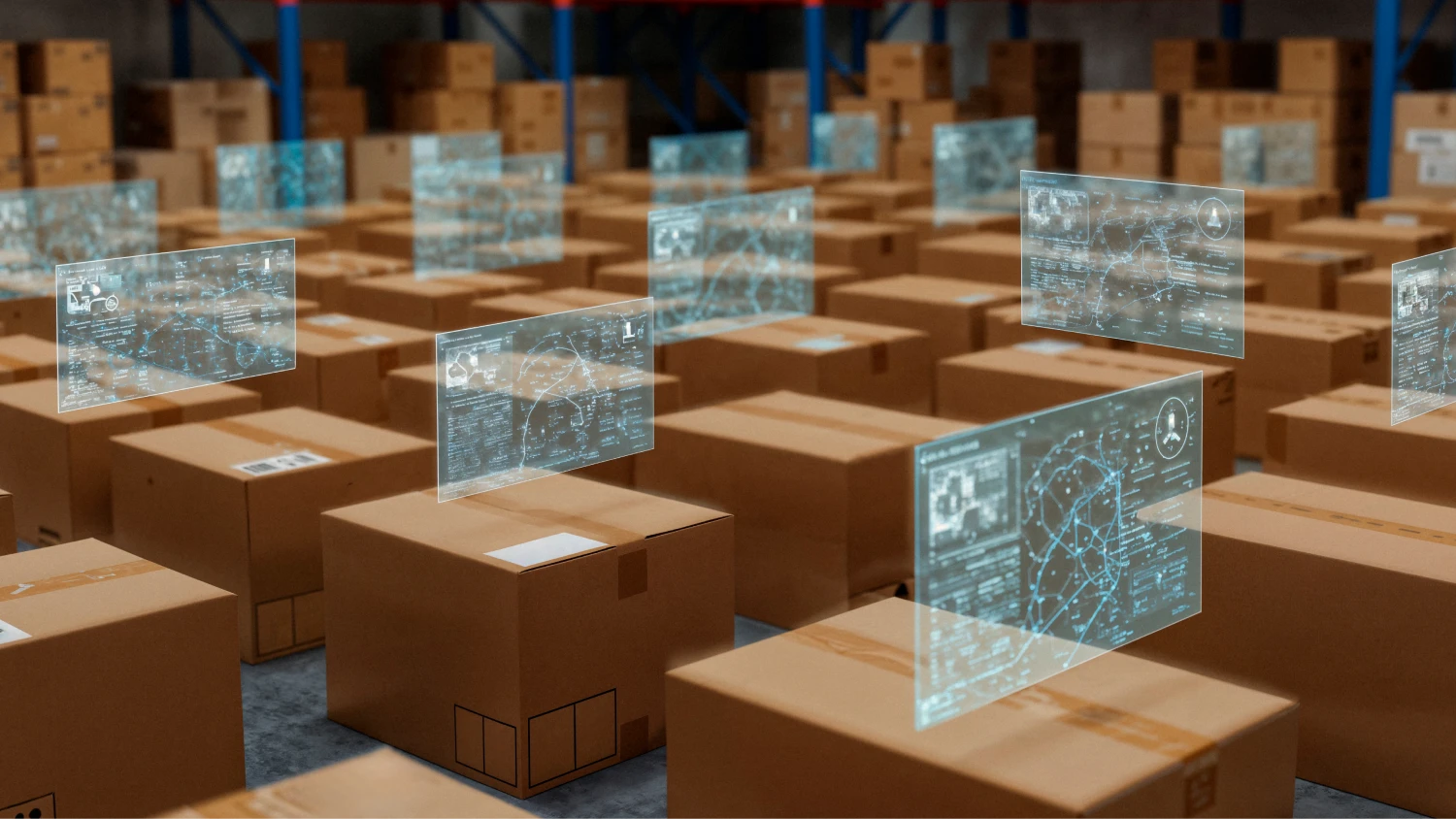In today’s rapidly changing market, characterized by unpredictable international conditions and the impact of “black swan” events like pandemics and geopolitical conflicts, traditional supply chains face unprecedented challenges. All stakeholders in the supply chain are grappling with these difficulties.
The core challenges can be attributed to three main factors:
- Limited Capacity: Supply chains have inherent constraints in capacity.
- Time Delays: Goods flow through the supply chain with time lags, as transactions occur between various links in the chain.
- Interconnected Constraints: Elements within the supply chain are interconnected, often conflicting in goals like speed, quality, and cost.
Despite advancements in technologies such as IoT, AIGC, and supply chain control towers, many companies have yet to see substantial business returns.
However, Qingdao Beer, through a partnership with Sophus, has realized significant cost reductions and efficiency gains by leveraging supply chain optimization technology to empower their IBP (Integrated Business Planning) process.
Overview of Qingdao Beer
Qingdao Beer Co., Ltd. (referred to as “Qingdao Beer”) is one of China’s most historic beer manufacturers. It has maintained its top position in China’s beer industry for 19 consecutive years and ranks among the world’s top 500 brands.
According to Qingdao Beer’s 2022 annual report, the company operates 57 wholly-owned and majority-owned beer production facilities across China, along with 2 joint venture and affiliated production plants, spanning 20 provinces, municipalities, and autonomous regions.

Challenges Faced by Qingdao Beer
Supply Constraint Perspective
Tsingtao Beer faces limitations with its number of factories and production lines, each constrained by product type and capacity.
Expanding production capabilities is costly and time-consuming, and existing resources have varying efficiency and costs.
Furthermore, logistics are restricted, making it impractical to transport or store beer in any quantity or at any time due to its heavy nature, leading to significant costs.
Ensuring product freshness throughout the supply chain—from brewing to final delivery—adds complexity. The challenge lies in balancing quality, freshness, and efficiency within the available capacity.
“Balancing quality and freshness with profitability and efficiency within our current capacity is a constant challenge,”
stated Supply Chain Manager at Qingdao Beer.
Business Perspective
Managing the supply chain requires answers to complex questions: which factory produces which products, in what quantities, when, and where they are stored and transported. Each decision affects efficiency and cost.
“Relying solely on human experience makes it difficult to optimize plans across all departments,”
said the Business Operations Director.
Communication between functional teams, regional teams, and senior management is often challenging, leading to poor data quality and inefficient decision-making.
Digitalization Perspective
While Qingdao Beer has digitized its supply chain systems with an integrated ERP platform, including WMS, TMS, MES, and IBP, leveraging the accumulated data for enhanced decision-making remains a challenge. There was a growing need for a more intelligent, automated system to support smarter decision-making.
Application of the Supply Chain Optimization Platform at Tsingtao Beer
In 2022, Qingdao Beer partnered with Sophus to utilize its supply chain optimization platform, enhancing their IBP process with the following objectives:
Standardization of Supply Chain Decision Data
To improve decision-making, Sophus helped Tsingtao Beer standardize:
-
- Master Data: Ensured consistency in supply chain data across all operations.
-
- Cost Data: Unified the cost information throughout the supply chain, providing a clear view of expenditures.
-
- Constraints: Standardized constraints such as production and transportation capacities, enabling better planning.
-
- Business Rules: Defined clear rules for decision-making and planning, enhancing the reliability and implementation of strategies.
Sophus’ pre-configured framework, built on over 20 years of expertise, facilitated this standardization by streamlining data collection and validation.
“Sophus’ pre-configured framework allowed us to streamline data collection and validation,” noted, Data Analyst.
Automation of Decision-Making Data Manipulation

With standardized data, automated workflows were established to enhance efficiency in building decision models for common planning scenarios.
End-to-End Supply Chain Optimization
Many enterprises continue to rely on manual processes within their Integrated Business Planning (IBP) and Sales and Operations Planning (S&OP), despite using IBP systems. Typically, these processes are managed from the top down and in a step-by-step manner. For instance, monthly supply plans often begin with headquarters creating a master production plan, followed by regional factories developing detailed production plans based on their specific capabilities and orders. These plans then guide procurement and shipping decisions.
This traditional approach can lead to significant challenges: production, procurement, and shipping plans are usually developed independently by different departments and passed sequentially to the next. This fragmented approach often results in suboptimal consideration and integration of end-to-end supply chain costs.
Sophus’ supply chain optimization platform addresses these issues by enabling a comprehensive view of the entire supply chain. It balances supply and demand more effectively and incorporates costs related to production, logistics, and procurement across the entire network. This integration allows for the creation of cost-optimized, end-to-end plans and enhances coordination and alignment among all departments, leading to more efficient and cohesive supply chain management.
Enhanced Visualization of Supply Chain Decisions

Visualization of cost breakdowns and optimization results improved collaborative efficiency. The platform facilitated rapid analysis of cost elements, supporting continuous optimization efforts and effective decision-making.
Results and Learnings
“The Sophus platform has revolutionized our supply chain operations, leading to tens of millions in savings annually,”
stated the Head of Supply Planning at Qingdao Beer.
In addition to cost savings, Qingdao Beer has effectively reduced carbon emissions by optimizing transportation modes and distances.
Reflecting on the partnership’s success, key factors included:
-
- Clear expectations and defined objectives from the outset.
-
- A top-down approach to platform construction, starting with strategic planning and gradually refining specifics.
-
- Addressing issues at a strategic level first, then moving to detailed planning for monthly operations.
By adopting this methodical approach, Qingdao Beer effectively translated its supply chain strategy into tangible benefits.
Contact Sophus today to explore how our supply chain optimization solutions can drive efficiency and cost savings for your business.









